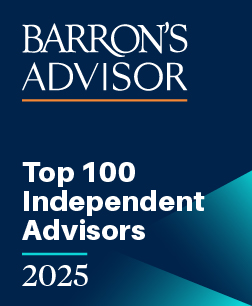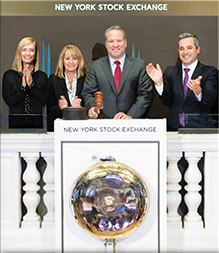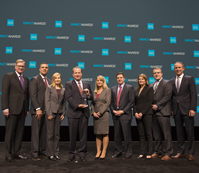With the introduction of the SECURE Act 2.0, various shifts are in motion, and one particular change will significantly affect individuals seeking to enhance their 401(k) contributions, particularly as retirement nears. Starting in January 2024, high-income taxpayers (those with earnings in excess of $145,000) wanting to make catch-up contributions to traditional retirement accounts will have those designated as Roth contributions. This change is mandatory and requires that retirement plans be amended accordingly. The objective of treating some catch-up contributions as after-tax Roth is to raise tax revenue to help offset the tax money lost through the saving incentives created by SECURE Act 2.0.
Under the existing law, individuals age 50 and older can make pre-tax catch-up contributions to their retirement accounts. For company-sponsored retirement plans, including 401(k) and 403(b) plans, the catch-up contribution limit is $7,500 in 2023. This limit will likely be adjusted higher for 2024.
However, beginning in 2024 under SECURE Act 2.0, if a taxpayer's wages exceed $145,000 for the year, the catch-up contribution must be treated as a Roth contribution and will not receive pre-tax treatment. This new provision means that many workers will pay taxes on their catch-up money now, during their high-earning years, instead of later in retirement, when they would likely be in a lower tax bracket. One caveat is that while these contributions will not reduce current taxable income, they can be withdrawn, along with any growth in value, tax-free in the future. The $145,000 earnings threshold will be adjusted for inflation in subsequent years. If earned income is $145,000 or less, individuals may continue to make pre-tax catch-up contributions, reducing their current year's taxable income.
Additionally, beginning in 2025, a new special catch-up contribution is permitted for individuals between the ages of 60 and 63. This can be somewhat complex, as the special contribution limit will be the greater of $10,000 or 150% of the standard catch-up limit in place for the year; using today's $7,500 catch-up limit, 150% equates to $11,250. It is important to note that the $10,000 limit will also be adjusted for inflation, and would only come into play if it is more than 150% of the standard catch-up limit. At age 64 the traditional lower catch-up contribution limit would again apply so, strangely, it’s only a four-year window of opportunity. Once again, this provision is mandatory and will require a plan amendment by employers.
One alarming oversight in the process of drafting conforming amendments in SECURE Act 2.0 is that the Act inadvertently deleted the provisions in the Internal Revenue Code that permitted catch-up provisions. As a result, current rules would not permit catch-up provisions, either pre-tax or Roth, after this year (2023). To address this error in the Act, Congress will need to pass additional legislation to reinstate the catch-up provisions. While it seems certain that Congress will act on this, the time frame is still unknown.
There has been a little pushback to the new rules as roughly 200 organizations penned a letter to the House Ways & Means Committee early in July, 2023, requesting additional time for implementation of the Roth catch-up provision (Section 603 of SECURE Act 2.0).
The letter was written by the American Benefits Council and signed by a number of employers and plan providers. The letter requests the committee to delay the provision for two years.
As new guidelines and clarifications come to light, it's crucial to stay informed and updated to navigate these changing regulations effectively. The landscape of retirement savings continues to evolve, and being aware of these changes can have a significant impact on financial planning strategies, especially for those in high-income brackets. As always it best to consult with your investment or tax professional to make sure you are implementing the right strategy for you.
Click here to read more of my RetireMint articles. Follow me on Twitter.
This document is for educational and informational purposes only and does not constitute an advertisement or solicitation of any securities or investment services provided Mainstay Capital Management, LLC (“MCM”). This document should not be construed as investment, tax, or legal advice, or a solicitation, or a recommendation to engage in any specific strategy. MCM is an independent investment adviser registered with U.S. Securities and Exchange Commission. MCM specializes in workplace savings plan portfolio management and retirement planning advice for active employees and retirees. This document was prepared by MCM primarily based on data collected and analyzed by MCM. The opinions expressed herein are those of MCM alone and are for background purposes only. MCM does not purport the analysis to be full or complete or to constitute investment advice and should not be relied on. In addition, certain information contained herein or utilized to draw the conclusions contained herein has been provided by, or obtained from, third party sources. While MCM believes that such sources are reliable, it cannot guarantee the accuracy of any such information and does not represent that such information is accurate or complete. All materials and information are provided “as is” without any express or implied warranties by MCM. MCM charges its fee based on a percentage of assets under management, which creates an incentive and conflict of interest to increase assets in that account. Furthermore, MCM has two different fee schedules, and therefore has a conflict of interest when assets or accounts move from the lower fee schedule to the higher fee schedule. Opinions expressed are subject to change without notice and are not intended as investment advice or to predict future performance. Consult your financial professional before making any investment decision. Please see MCM’s Form ADV Part 2A and Form CRS for additional information.







